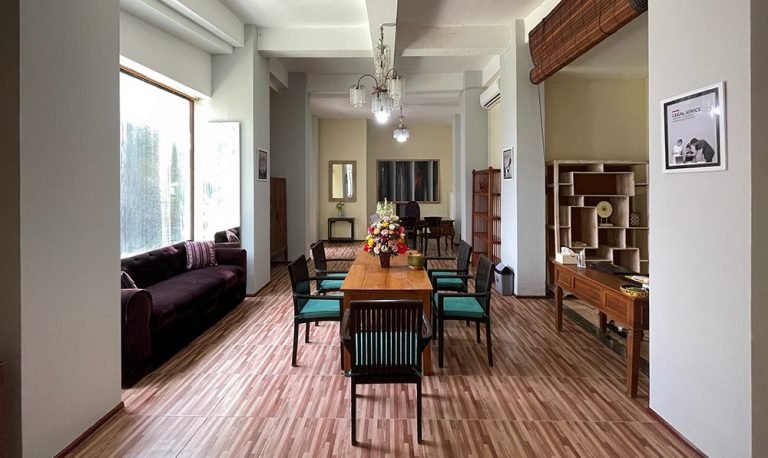
Indonesia is a country with the biggest Muslim population in the world and for business owners in the country, it is a wise move to obtain the Halal Certificate for their products. The Indonesian Halal Certificate is one of the most difficult certificates to obtain out there. However, with the right knowledge and due diligence before the application process, these steps will help any business owners and companies make their way towards the final goal (obtaining the certificate) an easy journey. Here are the key things you need to know regarding obtaining the Halal Certificate in Indonesia.
What does Halal Mean?
Halal refers to things that are allowed or permissible in the Islamic religion, specifically when it comes to food. This means that the food is prepared and handled in a way that follows Islamic dietary laws. For example, it should not contain pork or pork by-products, and the meat should come from an animal that was killed in a specific way while invoking God’s name. Additionally, it’s important that the food is produced and handled in a hygienic way. The opposite of halal is haram, which means something that is not allowed or prohibited in the Islamic religion.
What is a Halal Certification?
A Halal Certification in Indonesia is a process of ensuring that products and services comply with Islamic laws and guidelines. This certification is provided by the Indonesian Ulema Council (MUI) which is a government-affiliated agency that oversees halal certification in the country. In order to obtain halal certification, a company must submit their products and processes for review by the MUI, who will then conduct inspections and audits to ensure compliance with halal guidelines.
Once a product or service has been certified as halal, it can be labelled with the MUI’s halal logo, which serves as a guarantee for consumers that the product is compliant with Islamic dietary laws. The halal certification process in Indonesia is considered to be one of the most stringent in the world, and it covers not only food and beverages, but also cosmetics, pharmaceuticals, and other consumer goods.
Indonesia issued a Halal Certification Law, under Government Regulation 39 of 2021 (GR 39/2021) that will impact businesses in most industries. GR 39/2021 states that products that enter, circulate, and are traded in Indonesia must be Halal certified unless they are originating from materials prohibited under Islam. (Source: ASEAN Briefing)
Which products and services must be Halal certified?
In Indonesia, Halal Certification is mandatory for products and services that fall under the categories of food and beverages, cosmetics, and pharmaceuticals, unless the main ingredients are already deemed not halal. This includes everything from raw ingredients to finished products, as well as the manufacturing and packaging facilities and the personnel handling them.
Other products and services that may also be subject to halal certification include:
- Food service providers, such as restaurants and catering services.
- Food-related businesses, such as supermarkets and online food retailers.
- Cosmetics and personal care products, including skincare, hair care, and fragrance products.
- Pharmaceuticals, including drugs and dietary supplements.
- Livestock and animal feed.
- Ingredients and additives.
The Halal Certification is not only for Muslim consumers but for all consumers that want to ensure the product or service they consume or use is hygienic and produced according to ethical standards.
What is the Halal Certification process?
The Halal Certification process in Indonesia is administered by the Indonesian Ulema Council (MUI), a government-affiliated agency that oversees halal certification in the country. The process involves several steps:
- Application: Companies wishing to obtain halal certification must submit an application to the MUI, which includes information about the products or services to be certified, as well as details about the manufacturing and processing facilities.
- Review and assessment: The MUI will review the application and conduct an initial assessment of the company’s products, facilities, and processes to ensure compliance with halal guidelines.
- Inspection and audit: The MUI will conduct on-site inspections and audits of the company’s facilities and processes to verify compliance with halal guidelines. This includes checking the raw materials, ingredients, packaging, and labeling, as well as the manufacturing and handling processes.
- Testing: Products may be subject to laboratory testing to confirm that they are compliant with halal guidelines.
- Certification: Once the MUI is satisfied that the products, facilities, and processes meet halal guidelines, the company will be issued a halal certificate and given permission to use the MUI’s halal logo on their products.
- Re-certification and surveillance: The certification is valid for 1 year and the company must comply with the surveillance and re-certification process.
The Halal Certification process can be a complex and time-consuming process, and companies may need to make changes to their products, facilities, or processes in order to meet halal guidelines.
Submitting the Halal Certificate application
When submitting a Halal Certificate application to the Indonesian Ulema Council (MUI), a company must provide certain information and documentation. This can include:
- A detailed description of the products or services that are being applied for certification.
- A list of ingredients, raw materials, and suppliers used in the production of the products.
- Information about the manufacturing and processing facilities, including a description of the processes used, as well as photographs and diagrams of the facilities.
- Information about the personnel involved in the production and handling of the products, including their qualifications and training.
- Any relevant certifications or licenses held by the company, such as food safety or health certifications.
- A fee for the certification process.
The company needs to submit the application along with the necessary information and documents to the local MUI branch office. Additionally, if the company is part of an international supply chain, it may be required to provide additional documentation such as a Halal Certificate from the country of origin.
What about imported goods or services?
Imported goods and services in Indonesia must also comply with Halal Certification requirements in order to be sold in the country. Importers may be required to provide additional documentation such as a halal certificate from the country of origin, and they may also need to make changes to their facilities or processes in order to meet halal guidelines.
Article 47 of the Halal Law states that Halal certified products and materials coming from overseas will only have to be registered at BPJPH and later sold and distributed in Indonesia without any change in their Halal registration status.
However, not all foreign certificates will be allowed to go through this process and those certification institutions that are not on the list will have to be assessed by BPJPH.
As of January 2020, the Ministry of Religion recognized 45-Halal Certification bodies located outside of Indonesia in 26-countries. (Source: International Trade Association)
Halal Certification for micro and small enterprises
Halal Certification for micro and small enterprises (MSEs) in Indonesia is a simplified process that aims to help these smaller businesses comply with halal guidelines and obtain certification at a lower cost. The Indonesian Ulema Council (MUI) has a program called the “Ease of Halal Certification for Micro and Small Enterprises” (KBLM) to help MSEs navigate the certification process.
The process of getting Halal Certification for MSEs under the KBLM program starts with an application, where the MSEs will need to submit necessary information and documents to the MUI. Then, the MUI will review and assess the products, facilities and processes to ensure compliance with halal guidelines. Once the MUI is satisfied, the MSE will receive a halal certification and permission to use the MUI’s halal logo on their products. The certification is valid for 1 year, after that the MSEs need to comply with the surveillance and re-certification process.
The Halal Certification compliance period
Halal Certification and labelling requirements will be rolled out as follows
| October 2024 | for food and beverages |
| October 2026 | for traditional medicines and functional foods, cosmetics, chemicals and genetically modified organisms, clothing, household appliances and stationery, and class A medical equipment |
| October 2029 | for over-the-counter drugs and class B medical devices; and |
| October 2034 | for Class C prescription drugs and medical devices. |
Benefits of Obtaining a Halal Certificate in Indonesia
Obtaining Halal Certification for products and services in Indonesia can bring several benefits for companies, these include:
- Increased market access: Halal certification is mandatory for many products and services in Indonesia, and it is also a requirement for companies that want to export their products to other countries with large Muslim populations. Obtaining halal certification can therefore open up new market opportunities for companies.
- Increased consumer trust: Halal certification is a guarantee for consumers that the products and services they are purchasing are compliant with Islamic dietary laws and have been produced according to high ethical standards. This can increase consumer trust in a company’s products and services.
- Competitive advantage: With the increasing demand for halal products and services, companies with halal certification can have a competitive advantage over those without it, as it can differentiate their products and services in the market.
- Compliance with regulations: Halal certification is mandatory for many products and services in Indonesia, and it helps companies to comply with the regulations and avoid penalties.
- Improved quality and hygiene: The halal certification process includes inspections and audits of facilities and processes, which can help companies identify and address any issues with quality and hygiene. This can lead to improved products and services, and can also help to reduce the risk of food safety issues.
- Reputation: Companies that hold halal certification can gain a positive reputation for being socially responsible and ethical.
What About The Fees?
The fees for obtaining Halal Certification in Indonesia vary depending on the type of product or service being certified, the size of the company, and other factors.
Dr. H. Mastuki, head of Halal Product Assurance Organizing Agency (BPJPH), has previously stated that the cost of applying for a halal certificate of goods and services belonging to UMK is Rp. 300,000.00 plus the cost of halal inspection of UMK products by LPH for a maximum of Rp. 350,000.00. So the total cost is IDR 650,000.00.
For a medium food product business with simple processes/materials, the total cost is Rp. 8,000,000.00, consisting of a certificate application fee of Rp. 5,000,000.00 and a maximum LPH inspection fee of Rp. 3,000,000.00.
Take a look at the details regarding the Halal Certification fee:
- Application for Halal Certificate:
- Micro and Small Enterprises: IDR 300,000.00
- Medium Business: IDR 5,000,000.00
- Large Enterprises and/or originating from abroad: IDR 12,500,000.00
- Application for Extension of Halal Certificate:
- Micro and Small Enterprises: IDR 200,000.00
- Medium Business: IDR 2,400,000.00
- Large Enterprises and/or originating from abroad: IDR 5,000,000.003
- Overseas Halal Certification Registration: IDR 800,000.00
(Source: Indonesian Ministry of Religious Affairs)
Read More: The Importance of Registering a Trademark in Indonesia
Conclusion
To conclude, In Indonesia, there are several steps that companies can follow to obtain Halal Certification for their products or services. Here are the important steps for getting Halal Certification in Indonesia:
- Determine your eligibility:
- Understand the halal certification process:
- Prepare your documents and materials:
- Submit your application
- Undergo a site inspection
- Obtain halal certification
Overall, obtaining Halal Certification in Indonesia requires a thorough understanding of the halal standards and guidelines, as well as a thorough review of your company’s operations and practices. It is important to work with experienced professionals to navigate the halal certification process and ensure that your products or services meet the necessary requirements.
It’s worth noting that obtaining Halal Certification can be a complex and time-consuming process, but the benefits can be significant for companies in the long term.
Get your Halal Certification in Indonesia with Seven Stones Indonesia!
Don’t miss out on the opportunity to take your business to the next level by obtaining your Halal Certification in Indonesia! Getting the Halal Certification demonstrates your commitment to providing safe and trustworthy products for the growing Muslim market. Not only does it increase your brand credibility, but it also expands your customer base and opens up new markets, especially here in Indonesia. Let us help you navigate the process and obtain your Halal Certification today. Contact us at hello@sevenstonesindonesia.com to get started!


















